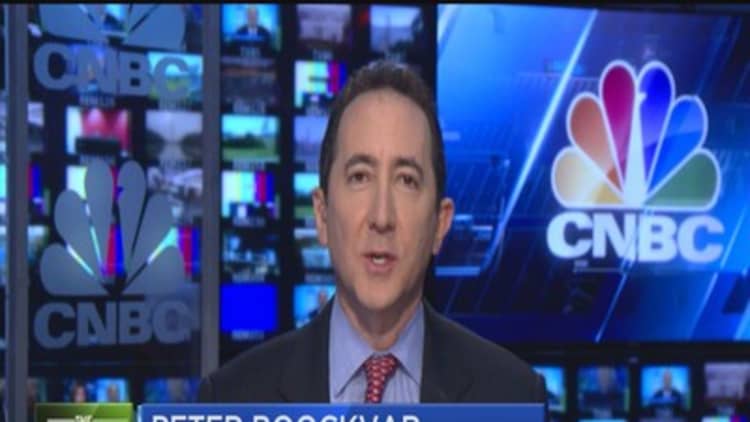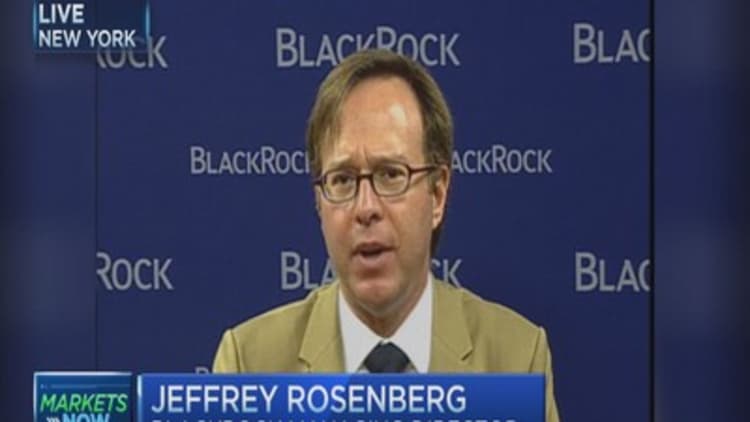

While the first reading in second-quarter gross domestic product shows mediocre growth in the U.S., the Federal Reserve will more likely than not raise interest rates in September, Peter Boockvar said Thursday.
"The first half is averaging a 1.5 percent type of growth, and even if we see 3 percent growth in the second half, we're still looking at 2-ish type percent growth, which is the theme that we've been experiencing over the last couple of years. We can't seem to get out of this what I want to call malaise. There is no sign of acceleration whatsoever within the data," The Lindsey Group's chief market analyst said in a CNBC "Squawk on the Street" interview.
The Commerce Department said Thursday the U.S. economy expanded at an annual rate of 2.3 percent, slightly below economists' expectations of 2.6 percent.
Boockvar made his comments a day after the Fed announced it would keep interest rates near zero.
Read More Sectors to bet on if the Fed stays put
"The only thing that I took of note was the slight upgrade on the comments of the labor market. The Fed is itching to raise rates. It wants an excuse to raise rates, and I think the change in the labor market commentary is one step towards them rationalizing to themselves that they need to raise rates," Boockvar added.
He also said that he believes the Fed has no concrete roadmap for when it starts normalizing monetary policy. "I think they should stop day trading the data and take a long-term view of what monetary policy should be and react to that than to every single data point that they see in the short term."
Nevertheless, BlackRock Chief Investment Strategist Jeff Rosenberg said Thursday he believes the Fed does have a plan for when it does hike.
"She [Yellen] lent credibility to the view that her plan, which is the most important voice, is [to raise] sooner but slower," Rosenberg said in another "Squawk on the Street" interview.
Read More Fed tea leaves leave market wanting more
"I think that really raises our expectations that September is definitively on the table here because they want to start earlier so that the whole path toward normalization can be shallower and therefore has a less disruptive impact on the financial markets. I think they want to go, and I think that's what we're going to see."


